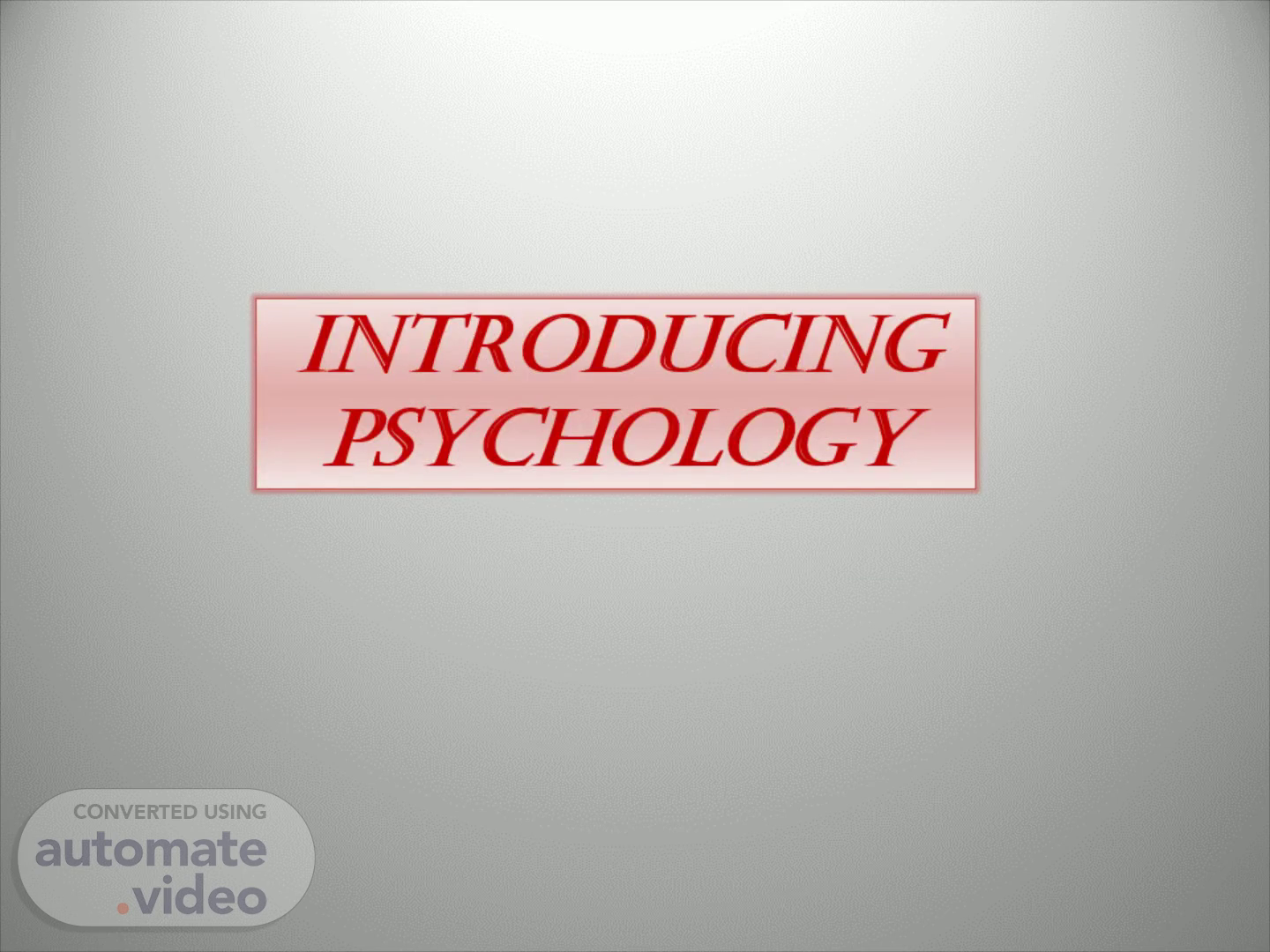
Introducing psychology
Scene 1 (0s)
Introducing psychology. Lecture 01# By: Brain and Mind.
Scene 2 (7s)
Outline. Introduction. Origin of psychology. Definition of psychology.
Scene 3 (19s)
Introduction.
Scene 4 (25s)
As human being our curiosity drives us to know the reasons behind various events happening around us..
Scene 5 (46s)
simple words psychology is a systematic and scientific study of mental processes, experiences and behaviors – both overt and covert..
Scene 6 (1m 6s)
Origin of psychology.
Scene 7 (1m 12s)
The word psychology has its origin in two greek words ‘psyche’ and ‘logos’..
Scene 8 (1m 33s)
Psychology is a study of mind. Later, the American psychologist William James (1890) fused the word “mind” in the place of “soul”. According to him psychology is a study of mind, it has no definite body, shape, cannot be seen as observe and difficult to study the nature of mind by the psychologists. Hence this definition is also rejected by the psychologists..
Scene 9 (2m 5s)
PSYCHOLOGY IS A STUDY OF CONSCIOUS EXPERIENCE. In 1884, William Sully defines psychology as the science of ‘inner world’ as distinguished from the science of the physical world..
Scene 10 (2m 27s)
Psychology is a study of behavior. Wilheum Wundt studied human behavior accurately through conducting his experiment on the object like patient and predicting his behavior for all the psychologists in his laboratory. Hence, all the psychologist called him as a “Father of psychology”..
Scene 11 (2m 58s)
Thus psychology deals with the following:. Mental processes.
Scene 12 (3m 15s)
Evolution in brief. Study of soul Study of mind Study of conscious experiences Study of behavior.
Scene 13 (3m 24s)
Definition of psychology.
Scene 14 (3m 30s)
Psychology as the ‘science of mental processes’. In his views, psychology may be defined in terms of conscious states..
Scene 15 (3m 48s)
In 1911 W. B. Pillsbury also defined psychology as the ‘science of behavior’..
Scene 16 (4m 11s)
Now we can define psychology as:. Psychology is the study of the mind and behavior. The discipline embrace all aspects of the human experiencefrom the functions of the brain to the actions of nations, from child development to care for the aged. In every concievable setting from scientific research centers to mental healthcare services. “the understanding of behavior” is the enterprise of psychologists..
Scene 17 (4m 32s)
Explanation of the key words.
Scene 18 (4m 38s)
Mental processes. Mental processes are the activities of mind and brain..
Scene 19 (4m 54s)
Experiences. Experiences can be defined as the learning acquired through everyday life situation..
Scene 20 (5m 9s)
Behaviors. Bahaviors are responses or reactions we make or activities we engage in. E.g. One can feel the heart pounding before taking an examination..
Scene 21 (5m 29s)
Scope of psychology.
Scene 22 (5m 35s)
As psychology has evolved as a science, its fields of specialization have multiplied and its educational and training requirements have become formalized..
Scene 23 (5m 53s)
Psychology covers enormous range of scope or fields..
Scene 24 (6m 9s)
Scope of psychology in pakistan is an interdiscipinalry subject because it shares its borders with several other subjects such as the social sciences, life sciences, and artificial intelligence/ needless to say, as a profession, the field of psychology is huge..
Scene 25 (6m 24s)
Psychology as hybrid science.
Scene 26 (6m 30s)
Psychology is a hybrid science that draws its influence from both natural and social sciences..
Scene 27 (6m 48s)
Psychology as a scientific subject.
Scene 28 (6m 54s)
A science is the body of systematized knowledge that is gathered carefully observing and measuring events..
Scene 29 (7m 16s)
A science deals with a group of related facts and principles of particular subjects..
Scene 30 (7m 37s)
Now we can able to understand.
Scene 31 (7m 44s)
The term psychology in actual way. The historical background of psychology.